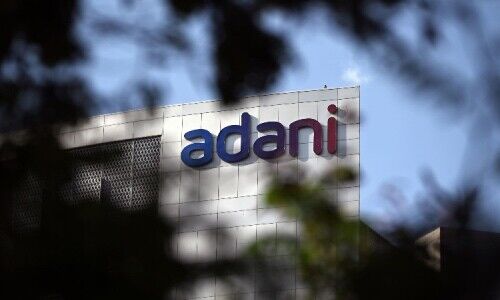The US-based short seller flags a series of bizarre emails received from India’s securities regulator.
If nothing else, the allegations of widescale fraud by the Hindenburg research over businesses owned by billionaire Gautam Adani are gifts that just keep on keeping - at least in terms of media coverage.
finews.asia previously reported on the ostensible impact of the case on the global banking system while also extensively commenting on the David versus Goliath type confrontation between a relatively small US-based research firm and one of India’s richest citizens.
Grasping for Answers
Well, things heated up again overnight, when Hindenburg publicly detailed a bizarre series of emails from the Securities and Exchange Board of India (SEBI).
According to the short-seller, they were aware that the Indian regulator had «been grappling» with how to respond to them, given they are a US-based research firm with no presence of operations in India.
Phishing or Not
Then, in late June, Hindenburg received an email where SEBI ostensibly flagged its message sent to them as a security risk, which it then went on to go ahead and somewhat unexplainably quarantine.
Like most, Hindenburg believed it was a phishing attempt that every single human being around the world with a halfway operational email account faces daily.
Suspected Violations
But later that same day, the regulator allegedly sent them another email outlining what they indicated were suspected violations of regulations in India. But Hindenburg wouldn’t be Hindenburg if it took it all lying down.
«Today we are sharing the entirety of this notice, frankly because we think it is nonsense, concocted to serve a pre-ordained purpose: an attempt to silence and intimidate those who expose corruption and fraud perpetrated by the most powerful individuals in India,» Hindenburg said.
Not Addressing Allegations
According to Hindenburg, it stands by its initial allegations of fraud, noting that it had prompted Deloitte to resign from auditing Adani Ports and at least 40 additional investigations by the media.
«To this day, Adani has still failed to address the allegations in our report, instead providing a response that ignored every key issue we raised and has offered blanket denials of subsequent media allegations,» Hindenburg said.
Key Findings
According to Hindenburg, SEBI appears more interested in pursuing those who expose the fraudulent practices than trying to pursue the parties involved in the fraud itself.
«When pressed by the public and the Supreme Court to investigate the issues, SEBI appeared to flounder. Initially, it seemed to agree with several key findings from our report,» Hindenburg maintained.
Modest Trades
The short seller claims it has only made modest amounts of money from trading Adani’s US-listed bonds and that overall, it expects to come out breakeven or slightly ahead when legal and research expenses are included.
«There was never a point where the Adani thesis was financially justifiable for us. It was even less justifiable from a personal risk and safety perspective. But, to date, our research on Adani is by far the work we are most proud of,» Hindenburg maintained.
International Focus
With its response, the short-seller has now clearly drawn international attention to SEBI’s role in all of this, which will more than likely give the whole case an entirely new dimension from here on out.




























